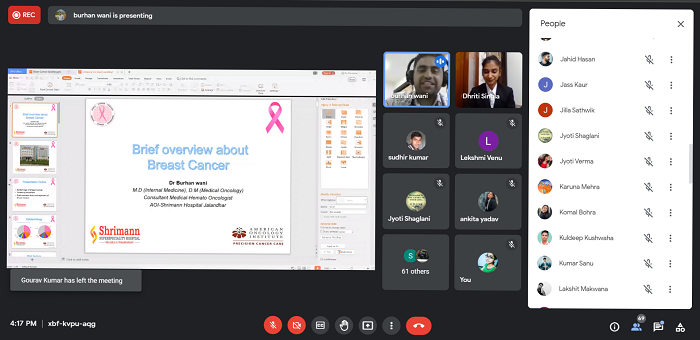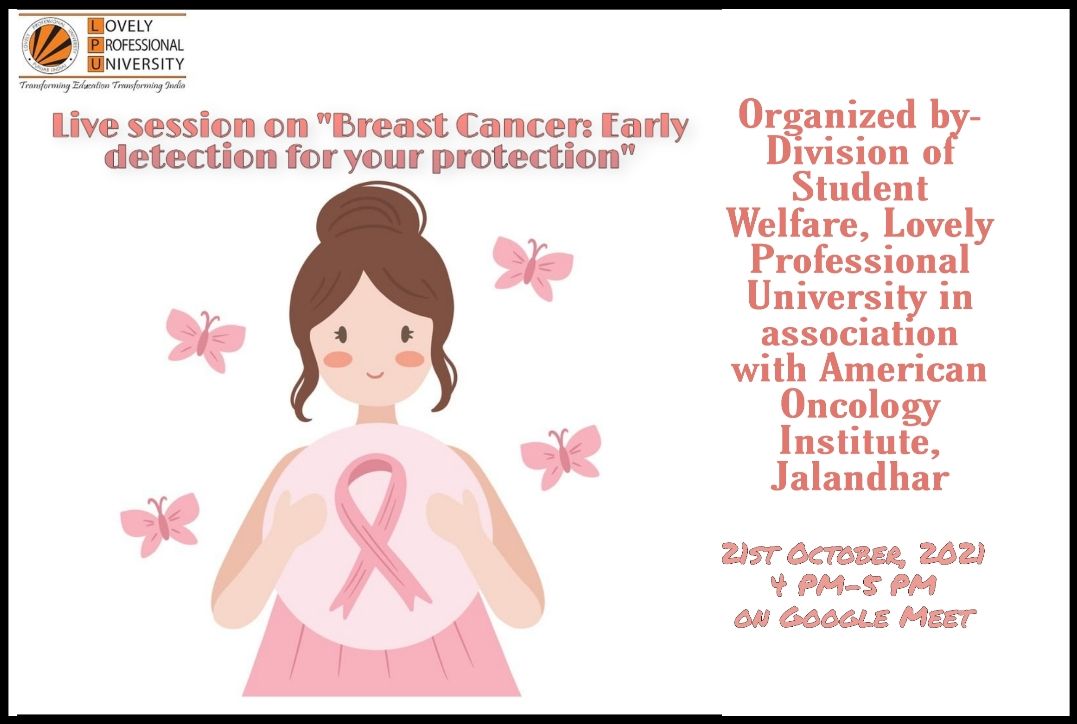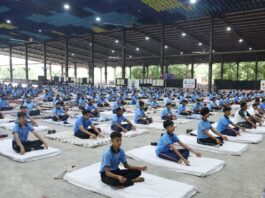Breast cancer is a cancer of breast cells and is one of the most widely occurring cancers in India with over a million cases per year. Cancer occurs when the cells in a specific part of our body begin to grow out of control and spread like wildfire if not treated at an early stage. As the number of cases keeps on increasing along with the mortality rate, we often fail to recognize the signs our body starts to show when cancer gets a hold of it thus, leading to a critical stage in no time, from where surviving becomes extremely difficult.
To throw light on this burning issue, specifically taking up the topic of breast cancer, a Live session was organized by the Division of Student Welfare, Lovely Professional University in association with the American Oncology Institute, Jalandhar. The session namely “Breast Cancer: Early Detection for your Protection” was conducted by Dr. Burhan Wani (M.D. in Internal Medicine and D.M. in Medical Oncology) where he discussed the general aspects of breast cancer, its occurrence, symptoms, and prevention.
At first, he presented shocking data that in 2018, 27% of women in India were victims of breast cancer. It is the most common followed by cervical cancer in females. Also, 10-15% of the cases are based on family history and hereditary factors i.e. presence of an abnormal gene. It can also be due to various other factors like hormonal where high exposure to estrogen can lead to tumor formation in the breasts. Non-lactating and childless women are at higher risk along with it, dietary factors like obesity, alcohol abuse, consumption of oral contraceptives, and radiation exposure can be leading causes of this cancer too.

The major concern remains the inability to identify the symptoms shown by our body due to the development of cancer. Any lump, swelling in the breast which can be painless at first, unusual discharge, or change in morphology and color must be reported by women immediately to their physician and run appropriate tests and scans for it. Not only females but males are also at risk of breast cancer. If the diagnosis is done at an early stage, the chances of survival become significantly high.
Screening is one of the effective methods to detect even before signs and symptoms start showing. The tests and scans include a cell breast examination, mammography (X-ray detection), and clinical examination which are majorly done after the age of 40 but the younger age group can run a test every three years.
The management of this disease is done by chemotherapy, drug therapy, radiotherapy, surgical removal of breasts, and risk reduction surgery. Dr. Wani Sir also recommended not to go for PET scans until extremely necessary and self-examinations can be conducted to notice any unusualness in our body. He ended this session by answering a few queries of students and thanked LPU for giving him this opportunity to share his knowledge with everyone and making them aware.




